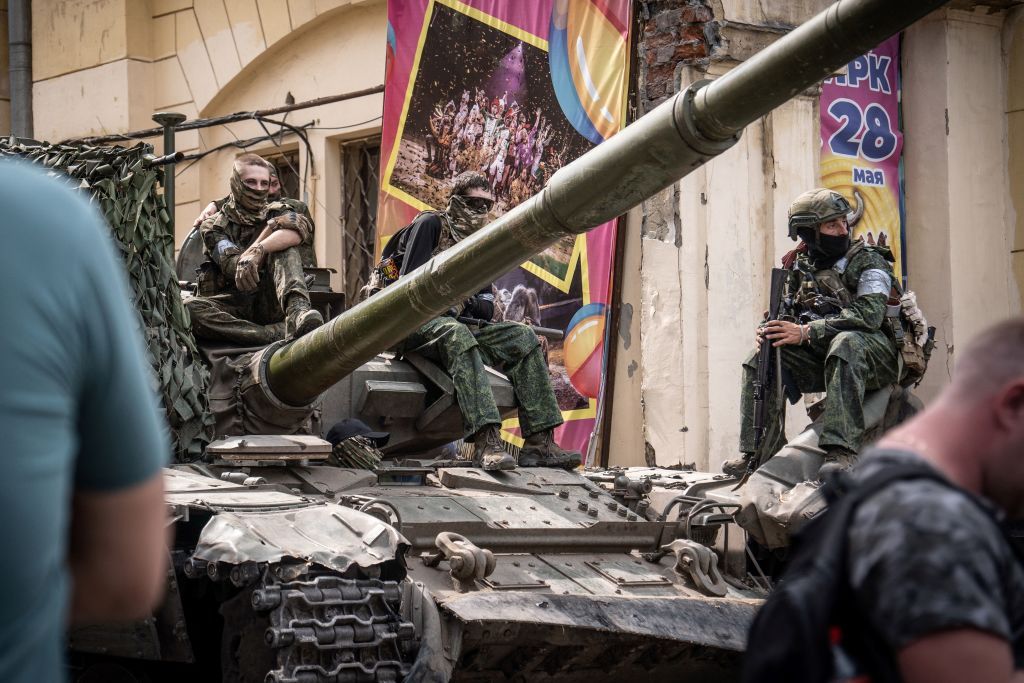Following mutiny, Russian state media downplays Wagner's battlefield results

Following the Wagner mercenary group's short-lived mutiny against the Russian government, Russian state media started downplaying the importance of the group that is best known for its long siege of Bakhmut.
In a recent broadcast, Russian state-owned First Channel made comparisons of the battles of Bakhmut and Mariupol, saying that Mariupol was, in fact, more important than Bakhmut, and taken much faster – in 71 days, as opposed to the 10-month-long siege of Bakhmut.
Mariupol was taken by Russian regular forces, while the siege of Bakhmut was led largely by Wagner mercenaries.
The state channel said Bakhmut was "not the most important city on the front line" compared to Mariupol, according to Meduza, an exiled Russian news site.
However, on May 21, the same TV channel had called Wagner's capture of Bakhmut "an event of historic scale," showing a shift in Russian propaganda over the mercenary group's victory, according to Meduza.
After 10 months of a bloody battle for Bakhmut, Wagner mercenary group boss Yevgeny Prigozhin claimed full control over the embattled city of Bakhmut on May 20 in a voice message posted to Telegram.
Described as a "meat-grinder" battle where Wagner troops relentlessly sent thousands of mercenaries alongside convicts recruited from Russian prisons in relentless waves of attacks, the battle of Bakhmut had been ongoing since August 2022 and has been described as one of the largest and heaviest engagements in the war.
After Wagner Group's short-lived rebellion on June 23-24, Russia's Federal Security Service (FSB) was allegedly tasked with killing Prigozhin, according to Ukraine's military intelligence chief Kyrylo Budanov.
On June 27, the FSB claimed it had closed the criminal case over Prigozhin's armed insurrection.
Prigozhin said he launched a so-called "march for justice" against Russian military leaders on June 23 after a missile attack allegedly targeted Wagner troops in Ukraine. His mercenaries occupied Rostov and marched 200 kilometers to Moscow, only to abruptly end the rebellion less than 24 hours after its start.
As a result of an undisclosed agreement between Wagner's boss and the Kremlin, Prigozhin and his contractors were allegedly allowed to leave for Belarus. Moscow claimed that Wagner mercenaries would also have the opportunity to sign a contract with the Russian Defense Ministry and continue fighting against Ukraine.
Russian independent outlet Verstka, citing its sources in Belarus, claimed that a military camp for 8,000 Wagner contractors is being constructed at Asipovichy, roughly 200 km from the Belarusian-Ukrainian border.
However, Budanov said that Prigozhin didn't plan a massive stationing of his troops in Belarus but rather to set up a hub on its territory for logistic purposes and recruitment.
Belarusian dictator Alexander Lukashenko claimed on June 27 that Prigozhin had arrived in Belarus. However, there are still no visual or other confirmations of the Wagner boss' whereabouts.











